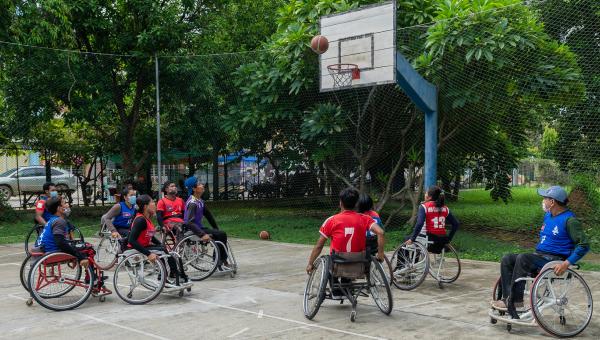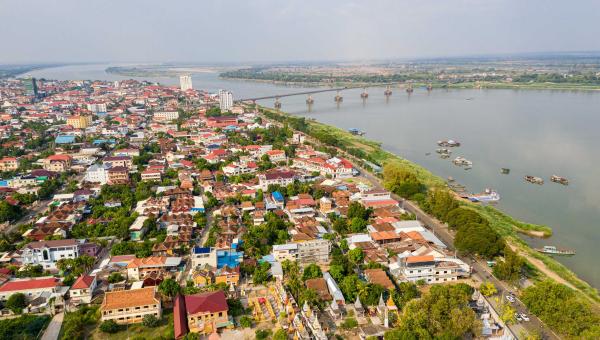SHIFT 3:
Strong institutions, civic space, and people-centred digital governance for a peaceful and resilient society

The third shift is strengthening institutions, civic space, and participation as enablers for inclusive growth and access to rights and equal opportunities for all while ensuring members of society can capitalize on the full potential of national digital transformation.
Central to this shift is strengthening trust between society and public institutions (vertical) and across different social groups (horizontal) by: (a) strengthening institutions as duty bearers to be more effective, inclusive, accountable, and transparent, (b) creating spaces and agency for the participation of people as rights holders, and (c) supporting a people-centred digital governance for social transformation.
UNDP will continue working with the National Council for Sub-National Democratic Development (NCDD), Ministry of Interior (MoI) and other development partners on localizing the SDGs, promoting public service innovation, strengthening civil society organizations (CSOs), advocating for people’s socioeconomic rights, access to justice and inclusive legal identity, particularly for women. Work will be linked to efforts for increasing the integrity of public services by improving accountability and transparency, especially at sub-national levels (Signature Solution on Governance). Given the high proportion of youth in Cambodia, UNDP will focus on youth and women’s inclusion as investments for a more cohesive and resilient society. Other development international partners have ongoing initiatives in decentralization/deconcentration where UNDP will have a complementary role in localizing the SDGs for better service delivery.
To accelerate the uptake of digital transformation, financing, and innovation—entry points seen as strategic enablers and accelerators for all other shifts—UNDP will support e-government and related systems to improve inclusive and transparent service delivery. Doing so will aid in prioritizing the development of capacities needed to implement the national digital policy and address the digital divide for women and people living in rural areas. Working with the International Telecommunication Union (ITU), Office of the High Commissioner for the Human Rights (OHCHR), and United Nations Educational, Scientific and Cultural Organization (UNESCO), UNDP will advocate for digital standards and a people-centred, whole-of-society digital transformation.
Potential risks associated with the narrowing of civic space, stringent digital regulations, and post- 2023 elections dynamics may delay reform efforts. UNDP will continue to advocate for an enabling environment conducive to greater civic engagement and supporting anticipatory and adaptive governance, including digital transformation and e-government, to strengthen the integrity and performance of governance processes.
Gender equality is fundamental to achieving stronger institutions and inclusive governance. UNDP will prioritize efforts to ensure women’s full and effective participation in decision-making processes, both in public institutions and civil society, and will advocate for gender-responsive policies and services at all levels of governance.

 Locations
Locations





